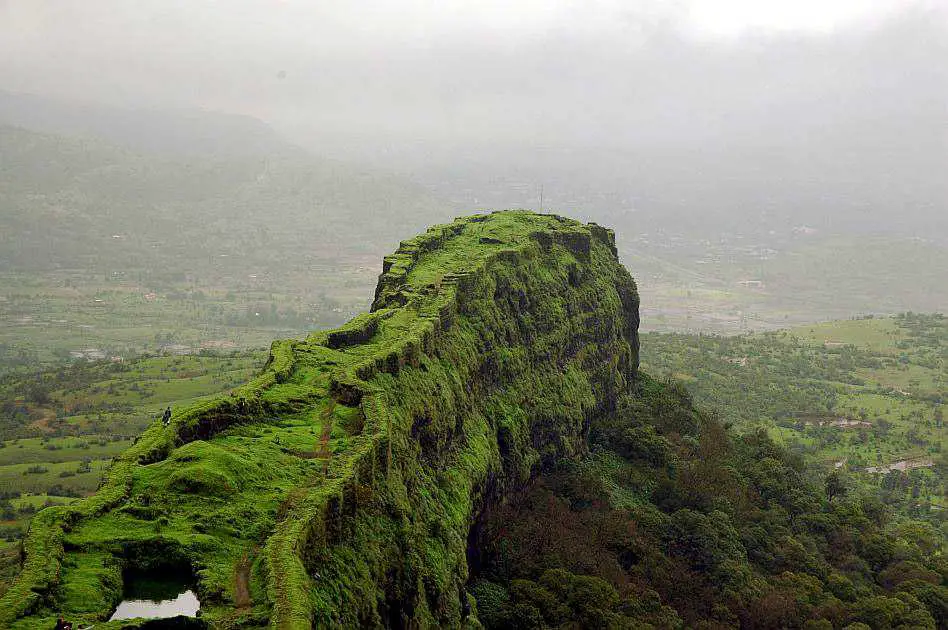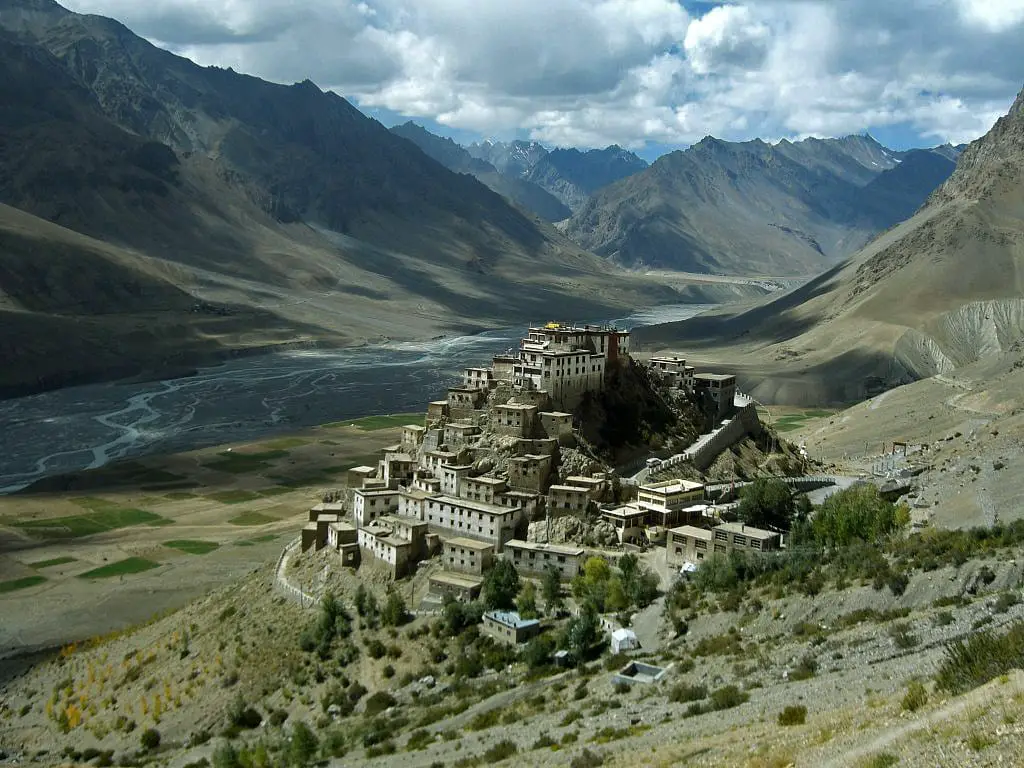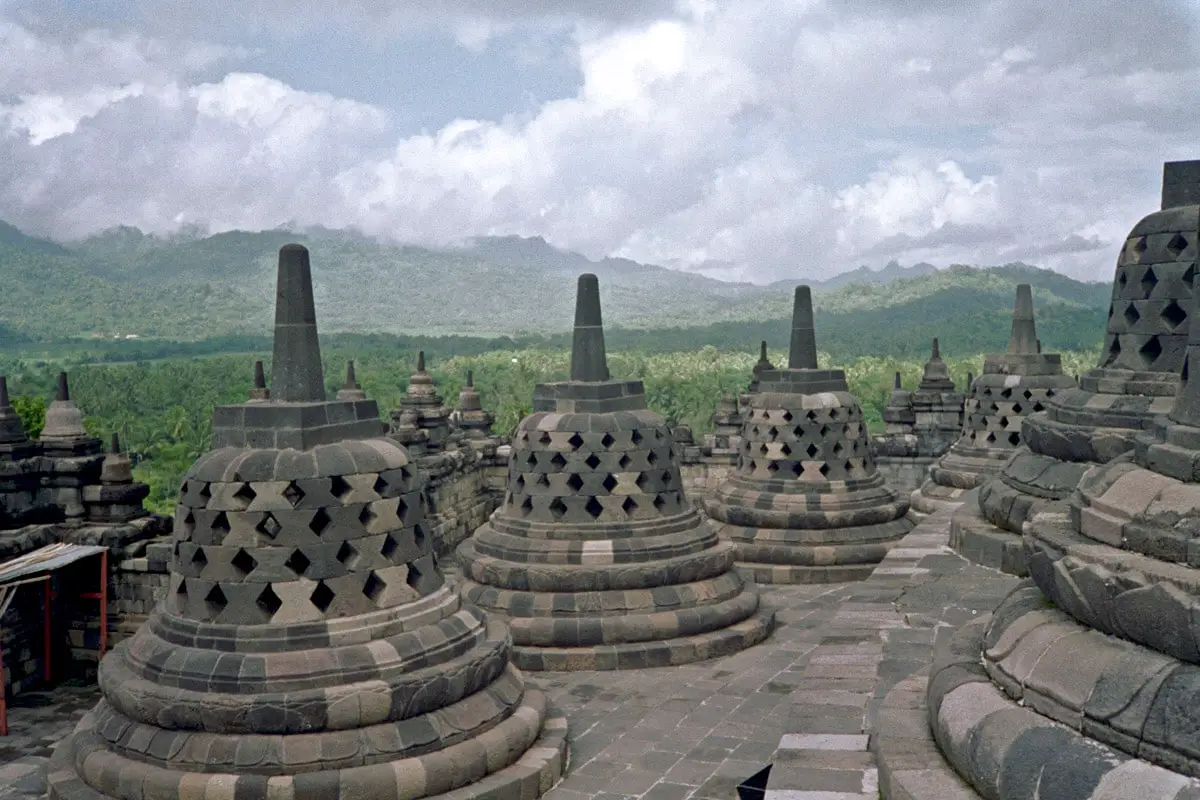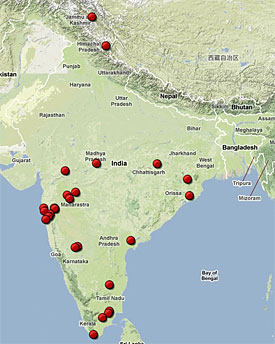World 🢖 Asia 🢖 India 🢖 Maharashtra
Buddhist shrines 🢔 Religious architecture 🢔 Archaeological wonders 🢔 Categories of wonders
Wonder
Karsamble Caves
 In short
In short
Some of the most impressive rock-cut caves in the vicinities of Pune city are the ancient Thanale Caves and also Karsamble Caves.
 43.3%
43.3%
GPS coordinates
Location, address
Alternate names
Age
Religion
Map of the site
If you see this after your page is loaded completely, leafletJS files are missing.
 In detail
In detail
History
Karsamble Caves are a group of 37 rock-cut structures located next to the trade route from the ancient port of Chaul. Caves are located at a complicated part of this route – next to the mountain pass. There are rather many impressive Buddhist rock-cut caves in similar locations.
Caves were built approximately in the 2nd century BC and were abandoned approximately at the late 5th century AD when the port of Chaul declined.
The abandoned caves were noticed by H.Cousens in 1881, around this time caves were used as a shelter of Indian revolutionary Vasudev Balwant Phadke as well.
Description
Once upon a time, Karsamble Caves were luxurious monasteries rich with contemporary artwork – sculptures and paintings.
The main cave is large vihara with chaitya. A hollow portion on the ceiling indicated that it contained stupa. Around the hall, there were made several cells for monks.
Sometime later, after the removal of the stupa, the cave was enlarged. In the southern part of the cave, there was made large vihara with seventeen cells. There was made also vaulted chaitya-griha at the rear part – the northern part of the cave.
Another cave in this group contains two stupas. Still another cave contains remnants of painted plaster with bands of red, black, and white color.
There is another group of rock-cut caves some 250 m from the main group. Locals call this group – Chamar Lena. One more rock-cut cave is located to the south-east from the main group, on the escarpment of Ganasurat hill.
References
- Indian Archaeology, 1981 – 82 – a review, New Delhi, 1982.
Karsamble Caves are included in the following article:
 Linked articles
Linked articles

Wonders of Maharashtra
Maharashtra is a truly splendid state. It has everything – enormous metropolises and countless waterfalls in mountains, urban decay, and architectural splendor, remnants of millennia-old Harappan towns, and modern, very expensive architecture.

Wonders of India
India is the seventh-largest country in the world by area, and, naturally, such a large area contains a huge amount of exciting attractions…
Wondermondo considers that India is the second richest center of architectural heritage in the world after Europe and maybe no single country in the world can match it in this respect.

Buddhist shrines
Buddhism is one of the world religions and at the same time is a spiritual philosophy with diverse traditions, beliefs, and practices. There exists a rich tradition of architecture expressed in Buddhist temples and monasteries.
 Recommended books
Recommended books
India Unveiled: Spirit, Tradition, People
This is the one book you need to understand the spirit of India. Internationally acclaimed as the best book of its type on India, this sixth expanded, revised edition of the multi-award-winning book India Unveiled: Spirit, Tradition, People by Robert Arnett truly reveals the diversity and sacredness of the oldest continuously living civilization on earth.
India: A Sacred Geography
A spiritual history of the world’s most religiously complex and diverse society, from one of Harvard’s most respected scholars.



